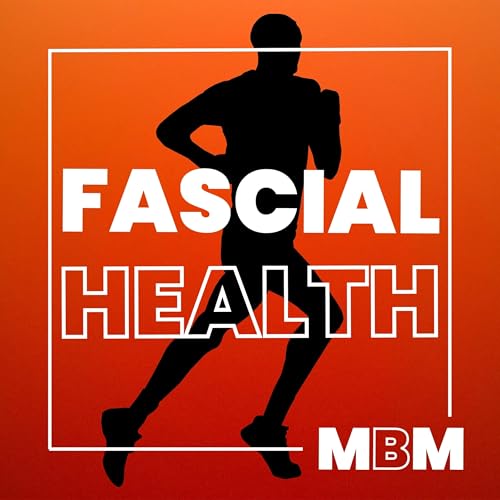
Enhancing Your Fascial Health: Insights and Strategies for Optimal Performance with Dr. Leo Kormanik
No se pudo agregar al carrito
Add to Cart failed.
Error al Agregar a Lista de Deseos.
Error al eliminar de la lista de deseos.
Error al añadir a tu biblioteca
Error al seguir el podcast
Error al dejar de seguir el podcast
-
Narrado por:
-
De:
Ever wonder why your body feels tight all the time and cannot ever seem to get loose? What are the best strategies to reduce this feeling and get moving in a better direction? This episode seeks to answer those questions with Dr. Leo Kormanik giving his insights into fascial health!
For another great episode on hydration check out: https://youtu.be/S4vimOv-8tA
And also this one with renowned nutritionist Meghann Featherstun: https://youtu.be/5JcRuecPPxM
Dr. Leo Kormanik elucidates the pivotal concept of fascial health, emphasizing its profound impact on overall physical performance and well-being. He articulates that fascia, the connective tissue enveloping muscles, nerves, and organs, requires optimal hydration and appropriate tension to function effectively. Throughout the discourse, Dr. Cormanik offers practical strategies to enhance fascial integrity, including hydration, dietary considerations, and specific pre-exercise protocols. He underscores the significance of maintaining a proper balance of electrolytes and the role of collagen in supporting fascial resilience. Ultimately, this episode serves as a comprehensive guide to achieving superior fascial health, enabling listeners to pursue an active lifestyle with confidence and vigor.
A profound exploration into the intricacies of fascial health unfolds through the insights of Dr. Leo Kormanik. The discussion delves into the essential role that fascia plays as the connective tissue enveloping muscles, nerves, and organs, serving not only as a structural support but also as a conduit for kinetic energy. Dr. Kormanik elucidates the phenomenon of fascial tightness and its implications on athletic performance, likening it to a balloon that, when pinched, distorts the natural alignment of its fibers. This analogy serves as a foundation for understanding how fascial restrictions can lead to diminished functional capacity, particularly in high-performing athletes. The conversation further emphasizes the importance of hydration, positing that the aging process diminishes our body's ability to retain water, resulting in fascial stiffness and decreased mobility. Dr. Kormanik advocates for a hydration strategy that is attuned to individual needs, suggesting that one should monitor urine color and frequency as indicators of hydration status.
Additionally, the episode provides actionable recommendations for enhancing fascial health through nutrition. Dr. Kormanik emphasizes the significance of collagen supplementation, particularly in conjunction with vitamin C, to bolster the integrity of fascia before engaging in physical activity. He further explores the relationship between dietary choices—particularly the balance of omega-3 and omega-6 fatty acids—and inflammation levels within the body, underscoring the detrimental effects of highly processed oils on fascial integrity. By advocating for healthier fats and a reduction in gluten consumption, particularly from processed sources, Dr. Kormanik provides a holistic approach that interweaves dietary awareness with physical wellness. This comprehensive dialogue not only informs listeners about the critical aspects of fascial health but also empowers them with practical strategies to enhance their overall physical performance and longevity.
Takeaways:
- Fascial health is fundamentally linked to hydration, which plays a vital role in maintaining the integrity of fascia throughout the body.
- The quality of dietary fats consumed significantly impacts inflammatory levels, influencing overall fascial health and fluid dynamics within the body.
- Engaging in proper stretching techniques and myofascial release methods can greatly enhance fascial mobility and reduce stiffness during physical activities.
- Collagen supplementation, particularly when combined with vitamin C, can aid in repairing and maintaining healthy fascial structure and function.
- Understanding


